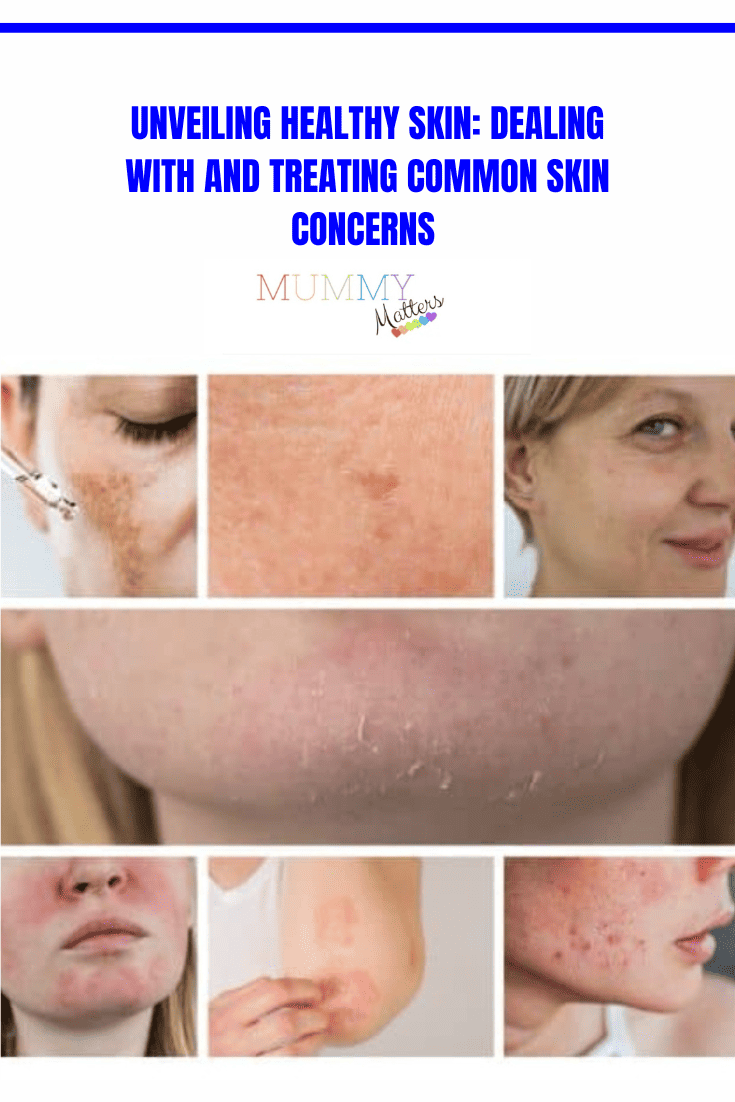Skin is the human body’s largest organ, and it plays a pivotal role in shielding our internal organs, regulating temperature, and representing our outward appearance. Radiant and healthy skin often mirrors our inner health and well-being. However, with numerous factors such as genetics, environment, and daily habits influencing the state of our skin, it’s common to encounter various skin concerns.
This post will delve into treating common skin problems. It might be worth consulting a dermatologist if you face any of these issues. For residents in the UK, seeking a Dermatologist London recommendation could be your first step to achieving clearer, healthier skin.
1. Acne and Breakouts
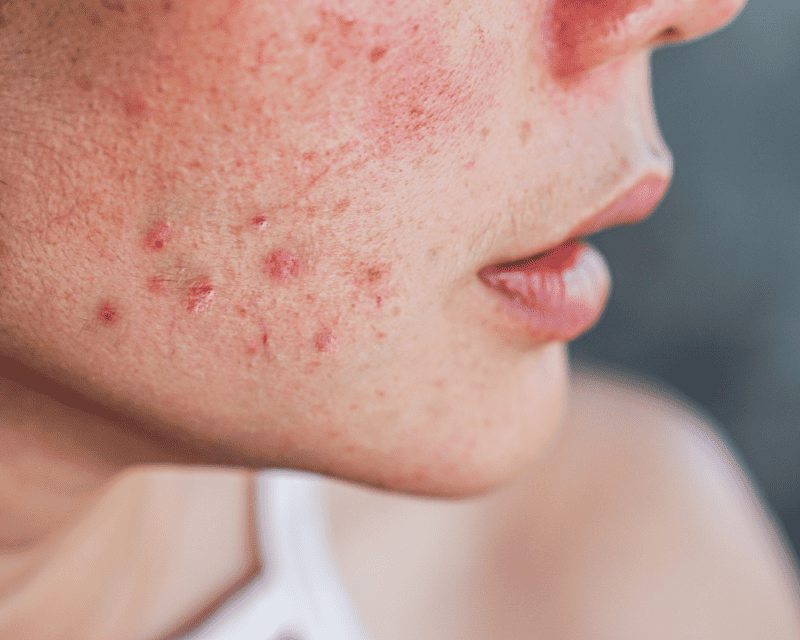
Understanding the Concern
Acne, the most common skin condition globally, primarily affects teenagers but isn’t limited to any age. Pimples, blackheads, whiteheads, and, in severe cases, cysts and nodules characterize it.
Treatment Options
- Topical treatments: Over-the-counter (OTC) products containing salicylic acid, benzoyl peroxide, or alpha hydroxy acids may treat mild acne.
- Oral Medications: Doctors might prescribe antibiotics or oral contraceptives for women to manage more persistent cases.
- Advanced treatments: Light or laser therapy, chemical peels, and drainage procedures can treat severe cases under a dermatologist’s guidance.
2. Eczema
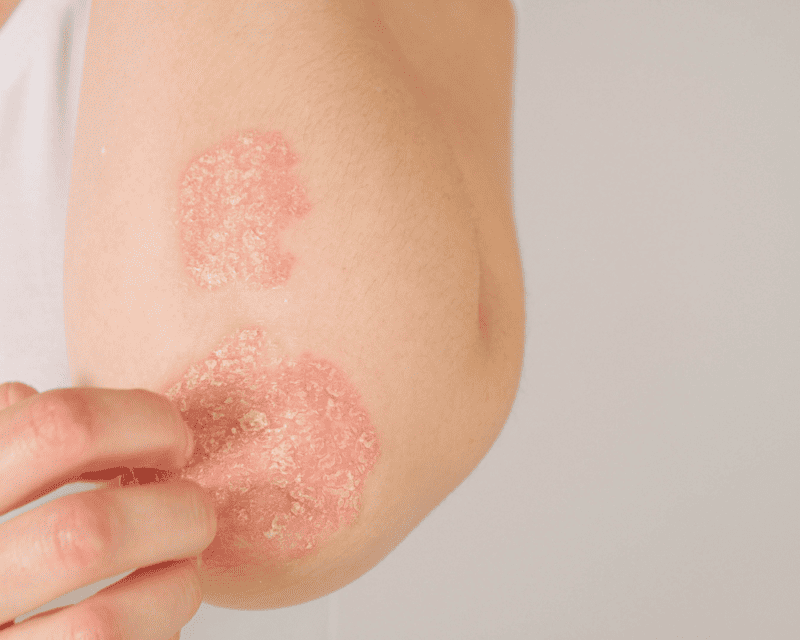
Understanding the Concern
Also known as atopic dermatitis, eczema is a condition causing red, itchy patches on the skin. It’s common in children but can occur at any age. The exact cause is unknown, but a combination of genetics and environmental triggers plays a role.
Treatment Options
- Moisturizing: Regular moisturizing with ointments or creams can reduce dryness and itching.
- Topical corticosteroids: These can relieve inflammation and are available in varying strengths.
- Oral medications and light therapy: For severe cases, a dermatologist might recommend these treatments.
3. Rosacea
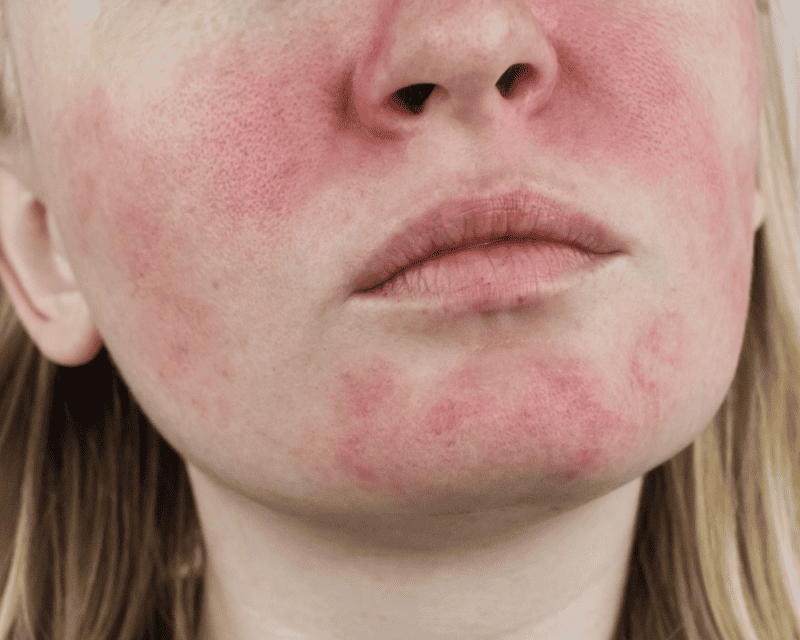
Understanding the Concern
Rosacea is a chronic skin condition causing facial redness, visible blood vessels, and sometimes pimple-like bumps. It often affects fair-skinned middle-aged women, though it can occur in anyone.
Treatment Options
- Topical treatments: Products containing brimonidine or azelaic acid can reduce redness.
- Oral antibiotics: Tetracycline, doxycycline, and minocycline can help reduce inflammation and redness.
- Laser therapy: This can be used to treat redness and visible blood vessels.
4. Sun Damage and Age Spots
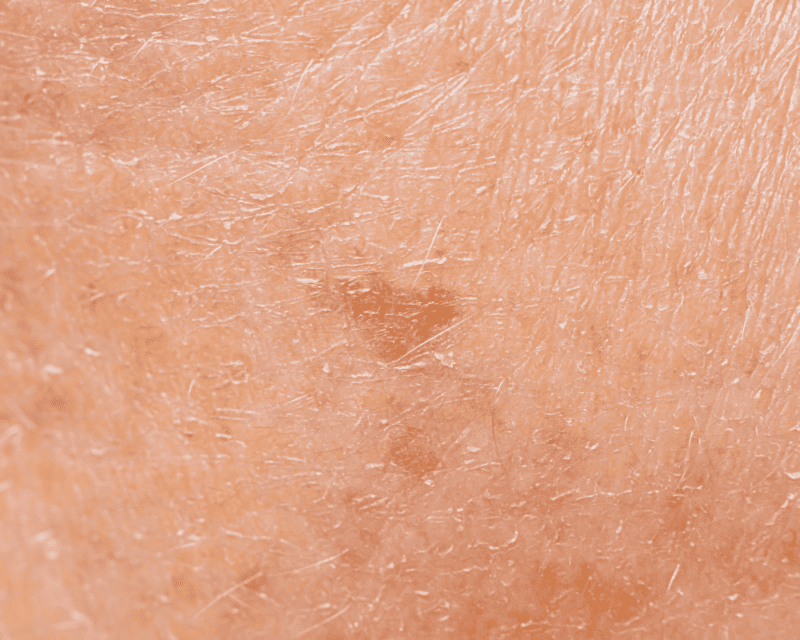
Understanding the Concern
Prolonged sun exposure without adequate protection can cause sunburn, premature ageing, and increase the risk of skin cancer. Age spots, or liver spots, are small dark areas on the skin, also resulting from sun exposure.
Treatment Options
- Sunscreen: Regular use of a broad-spectrum sunscreen can prevent further damage.
- Topical creams: Products with hydroquinone, glycolic acid, or kojic acid can lighten age spots.
- Laser therapy, microdermabrasion, and chemical peels: These treatments can improve the appearance of sun-damaged skin.
5. Wrinkles and Fine Lines
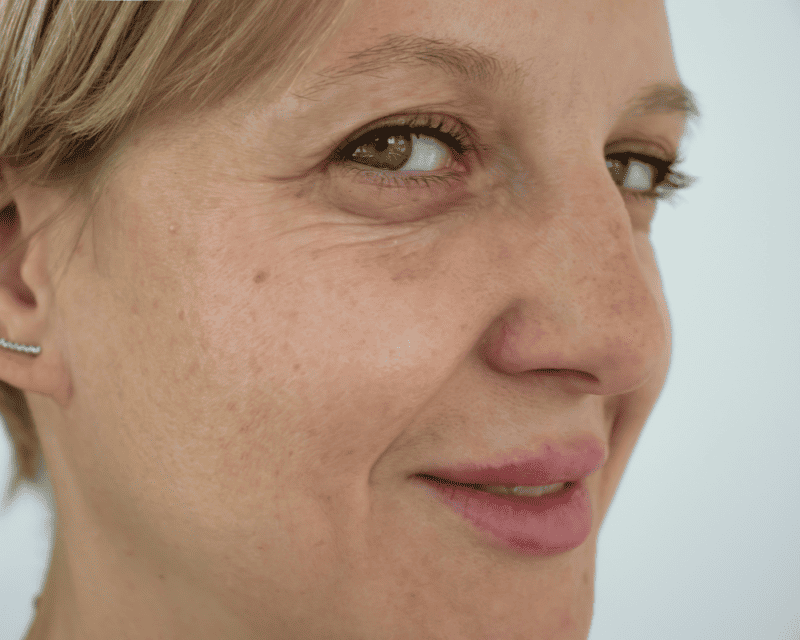
Understanding the Concern
A natural part of ageing, wrinkles and fine lines result from reduced skin collagen and elasticity. While genetics play a significant role, sun exposure, smoking, and dehydration can hasten their appearance.
Treatment Options
- Topical retinoids: These can improve the appearance of fine lines.
- Botox and fillers: Administered by trained professionals, these can temporarily reduce or eliminate wrinkles.
- Laser treatments: They stimulate collagen production, improving the skin’s elasticity.
6. Dry Skin and Flakiness
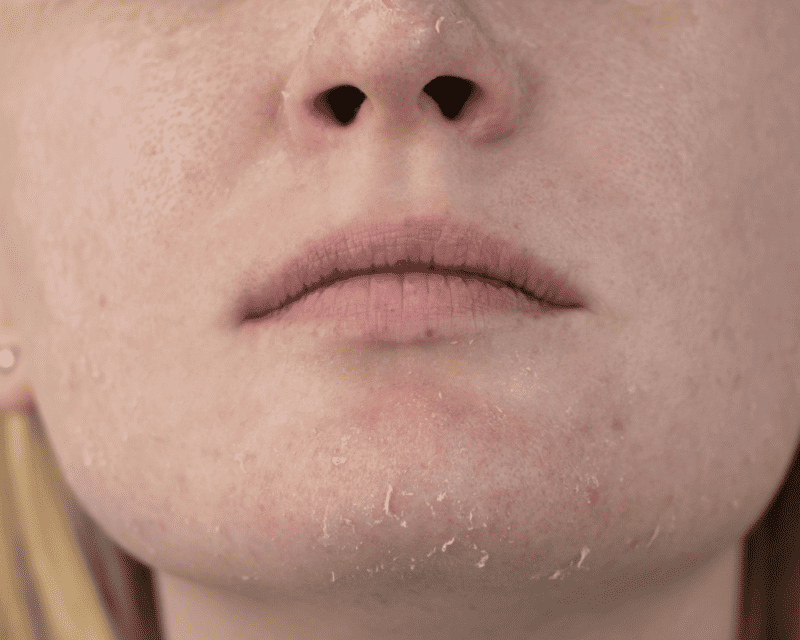
Understanding the Concern
Dry skin can be itchy, scaly, and tight, leading to discomfort and an ashen appearance. Several factors can cause dry skin, including cold weather, prolonged exposure to hot water, and harsh soaps or detergents. Ageing can also lead to decreased oil production, resulting in drier skin.
Treatment Options
- Hydration: Drinking sufficient water throughout the day can help maintain skin moisture.
- Moisturizers: Creams and oil-based ointments provide a protective layer on the skin, trapping moisture underneath.
- Gentle skincare: Opting for mild, fragrance-free cleansers and bathing in lukewarm water can prevent excessive dryness. Also, using a humidifier in dry climates or seasons can provide ambient moisture, benefiting the skin.
7. Hyperpigmentation
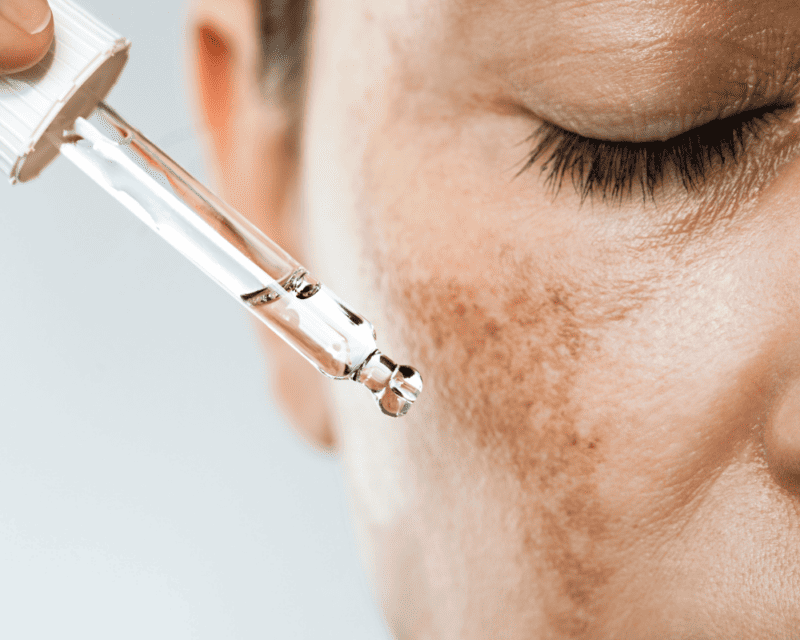
Understanding the Concern
Hyperpigmentation results in dark patches or spots on the skin, making it appear uneven. This can arise due to sun damage, acne scars, hormonal changes, or injuries to the skin.
Treatment Options
- Topical creams: Ingredients like vitamin C, niacinamide, and liquorice root extract can lighten dark spots.
- Chemical peels: Administered by professionals, these treatments involve applying an acid solution to remove the outer layer of old skin. The new skin that replaces it is smoother and less wrinkled.
- Micro-needling: A dermatologist uses tiny needles to create microscopic punctures in the skin. This process stimulates collagen production, helping to reduce the appearance of hyperpigmentation over time.
Incorporating these concerns into your skincare routine can significantly affect your skin’s overall health and appearance. Moreover, addressing these issues at the onset can prevent them from escalating into severe conditions. As always, if in doubt, seeking advice from a professional like a dermatologist in London can provide you with the right direction and treatments for your unique skin needs.
Conclusion: Listen to Your Skin
Your skin often mirrors your overall health. Drinking plenty of water, maintaining a balanced diet, using sunscreen, and following a consistent skincare routine can go a long way in preserving skin health. Moreover, regular skin check-ups are paramount, especially for those with a family history of skin conditions. If you’re in the UK and suspect you have a skin issue or need professional advice on skin health, start by searching for a reputable “dermatologist in London for expert guidance.
Remember, every individual’s skin is unique. What works for one might not work for another. Therefore, it’s always best to consult a professional to ensure you’re on the right path to unveiling your healthiest skin.
